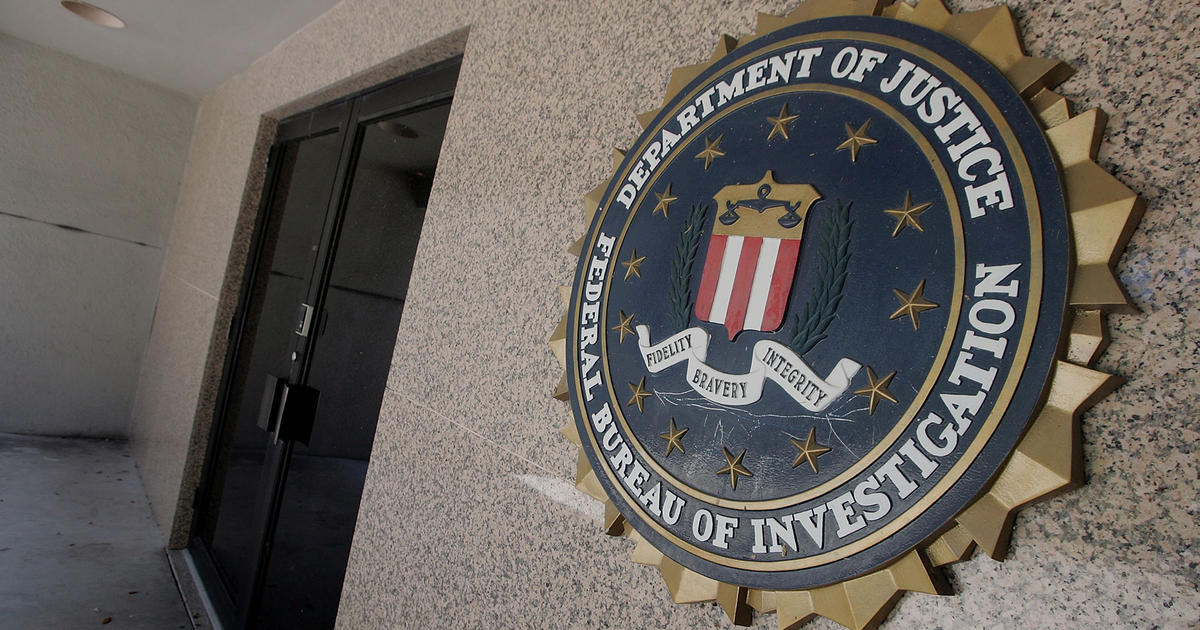"A historic moment": Georgia Legislature passes hate crimes bill
The Georgia Legislature on Tuesday afternoon passed a hate crimes bill that will now head to the desk of Governor Brian Kemp. If signed into law, Georgia would no longer be among four states without hate crime legislation on its books.
Advocates and lawmakers renewed their push to pass the bill after the killing of Ahmaud Arbery, a 25-year-old black man pursued by two white men and shot dead while jogging through a Brunswick neighborhood on February 23.
The bill, HB426, passed the state Senate by a 47-6 vote and the state house 127-38. Kemp's office said in a statement released to the Atlanta Journal-Constitution that he would sign the bill pending legal review.
Allison Padilla-Goodman, vice president of the southern division for the Anti-Defamation League, which has pushed for a hate crime law in the state for decades, told CBS News she is "thrilled" with the bill's passage.
"Both chambers, both sides of the aisle, are standing up to bias and bias-motivated crimes and saying they want to protect their citizens," Padilla-Goodman said.
South Carolina, Wyoming and Arkansas also remain without hate crime laws. Some advocates including the ADL also include Indiana on the list, calling a law passed in that state last year "problematically broad."
Ahmaud Arbery's killing, captured on a disturbing video, drew a national outcry. The two suspects, Gregory McMichael, 64, and his son Travis, 34, told police they thought Arbery was a burglary suspect. Two and a half months passed before they were charged with murder. An investigator later testified that Travis McMichael was heard using a racial slur as Arbery lay dying.
Republican Senator Bill Coswert called the bill's passage a "historic" moment.
"I think we're really at sort of a tipping point right now, and this has been brought about by some of the recent events that have been put visually in front of us on video that are impossible to defend," Coswert said.
The bill would mandate enhanced sentencing for defendants convicted of targeting a victim because of their "actual or perceived race, color, religion, national origin, sex, sexual orientation, gender, mental disability, or physical disability." That would mean additional potential prison time or fines on top of sentences for the type of crime for which the defendant was convicted, such as manslaughter or murder.
Previous efforts to pass a hate crimes bill in the state have faltered. The Georgia general assembly in 2000 passed a hate crimes bill that called for enhanced sentencing for crimes motivated by "bias or prejudice," but in 2004, the bill was struck down by the Georgia Supreme Court as unconstitutionally vague. HB 426, crafted with more specific language, gained bipartisan support and narrowly passed the Georgia House last year. But it stalled in a Senate committee before the legislature adjourned over coronavirus concerns in March.
Since Arbery's killing there's been a "newfound resurgence of interest in making sure Georgia gets this on the books," Georgia Representative Karen Bennett, chairwoman of the Georgia Legislative Black Caucus, told CBS News last month. When the legislature resumed this month, advocates backing the bill gathered at the state capitol, holding up signs showing Arbery and George Floyd, the black man whose death in police custody in Minnesota sparked national outrage and protests.
In speaking their support for the bill on the Senate floor, several senators shared their personal experiences with hate and discrimination. Democratic Senator Donzella James, who is black, said she was accosted as a child by a group of white students who yelled racial slurs and threw a bottle at her as she waited for a bus. Republican Senator Renee Unterman, who is Jewish, emotionally recalled having death threats and anti-Semitic literature delivered to her home when she was the mayor of the Georgia town of Loganville in the 1980s.
"It's time for Georgia to rise up and show that we will not stand for crimes done out of hate," James said. "Yes, we cannot legislate love, but we can put stronger penalties in place that may deter those who are committing these crimes from doing it."
The bill has not been without controversy. Debate erupted last week when Senate Republicans amended the bill to extend hate crime protections to law enforcement and first responders. Critics said the addition diluted the symbolic nature of hate crime legislation, which is typically intended to send a strong message condemning hate that has historically plagued marginalized communities in the U.S.
The first responders amendment was later struck from the bill in a bipartisan compromise, but some protections for law enforcement were folded into another bill that passed the House Tuesday, HB838. That proposed legislation would create a "bill of rights" for officers under investigation, and would add additional penalties for people convicted of targeting a firefighter, police officer or paramedic specifically because of their profession.
In a statement, the Democratic Party of Georgia said Republicans "forced through" HB838 even though law enforcement officials are already afforded protections under state law and "are all too often at the center of violence against the marginalized Georgians that the hate crimes law is looking to protect."
The bill's passage came the same day as the funeral for Rayshard Brooks, a black man who was shot dead by an Atlanta officer while fleeing with his Taser.
"We are thrilled that this [hate crimes] law has finally passed after years of advocacy, but let's be clear — we will not forget that this bill only came to light after 14 years of delays under Republican leadership, the murder of black men before our eyes, and the pain of marginalized communities across our state," the Georgia Democrats' statement said.
Speaking on the Senate floor, Democratic Senator Harold Jones called the bipartisan efforts to pass the bill a "tremendous lift."
"We have many times talked about bipartisan legislation — this is it. This is the definition of it," Jones said. "...Tempers flared at times. People got angry at times. But we always kept our focus that we are legislators."
Jones also noted that the latest version of the bill requires law enforcement agencies to report hate crimes data, something he said would benefit the effort to combat bias-motivated crimes in the state.
While states are the primary prosecutors of hate crimes, the federal government also has the authority to bring charges under the Matthew Shepard and James Byrd Jr. Hate Crimes Prevention Act. The Department of Justice can act as a "backstop" to prosecute hate crimes in states without the statutes or where state laws don't cover the crime. The Department of Justice has said it is reviewing the Arbery case to determine whether federal hate crime charges are appropriate.





